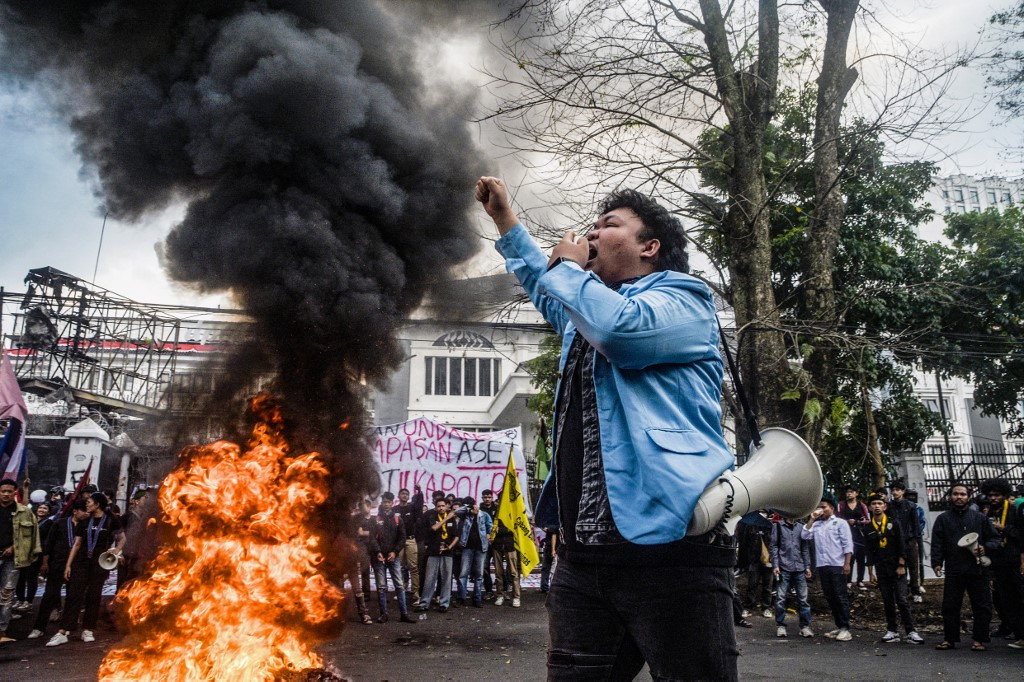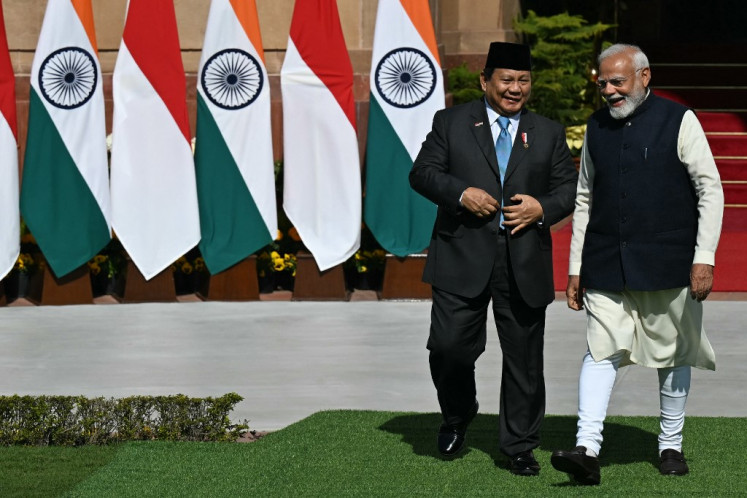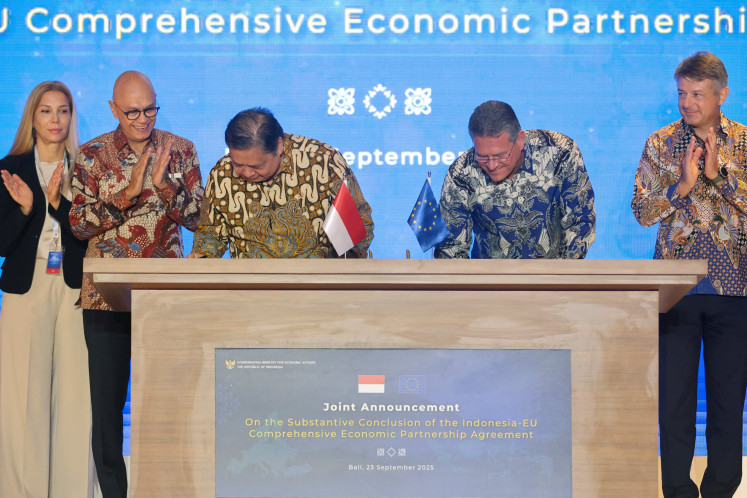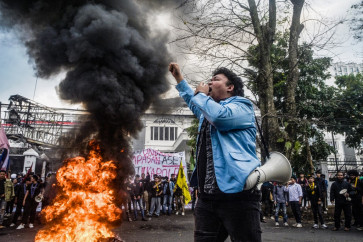Popular Reads
Top Results
Can't find what you're looking for?
View all search resultsPopular Reads
Top Results
Can't find what you're looking for?
View all search resultsThe cost of erosion of public trust in government
Indonesians have long tolerated hardship with patience. But there is a limit when public trust erodes.
Change text size
Gift Premium Articles
to Anyone
T
he protests that have spread across Indonesian cities over the last few days are not just about economic hardship. Nor are they about food prices or disillusionment over the generous allowances given to House of Representatives members. They are a symptom of something deeper: a growing sense that politics has drifted far from the anxieties of everyday citizens.
Indonesians have long tolerated hardship with patience. But there is a limit when public trust erodes. When the citizens see lawmakers enriching themselves, they sense that the political class, across parties, across factions, has lost sight of accountability. Politicians’ insensitive and dismissive responses to criticism have further alienated the public.
In the midst of rising hardship, many saw lawmakers enjoying generous salaries and perks, dancing in plenary sessions or flaunting their privileges. When protests occurred outside the House buildings, some legislators were traveling abroad, attending official-sounding events that many suspect are leisure trips. This contrast between hardship on the streets and leisure in the halls of power has amplified distrust.
The transition from Joko “Jokowi” Widodo to Prabowo Subianto was supposed to bring stability. Instead, it has opened old questions. Jokowi’s influence still lingers in the cabinet, shaping policies and appointments. His shadow irritates both allies and critics, who read it as a sign that Indonesia has not fully moved onto a new chapter.
Prabowo, meanwhile, faces the impossible task of appearing both firm and inclusive. His press statement at the State Palace on Aug. 31 was a reflection of this tension. He promised to respect the right to protest, while at the same time ordering the police and military to crack down on “anarchistic” acts. That dual message was designed to calm nerves. Yet to many, it sounded like a balancing act that pleased no one.
Security forces add another layer to the tension. The police, criticized for excessive force, remain under scrutiny, and the military is still remembered for past political interventions. In cities where protests have spread, from Jakarta to Surabaya, Bandung, Makassar, Surakarta, Mataram and beyond, the presence of both police and military is a visible reminder of unresolved institutional rivalries.
The public is not blind to these dynamics. On social media, debates rage about who benefits from chaos, who manipulates crowds and whether provocateurs are at work. The calls not to be divided, not to fall into sectarian conflict, show how fragile trust has become. Indonesians remember the riots of the past. They fear history might repeat itself.



















